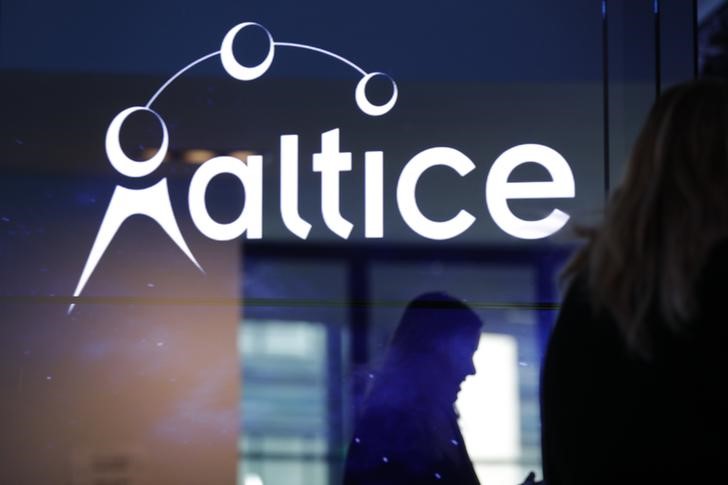By Sudip Kar-Gupta
PARIS (Reuters) - Altice (AS:ATCA) has no plans to raise cash by selling shares, the telecoms and cable group said on Monday, adding it had no problems with any loans and would cut its debts of $58 billion through asset sales.
Altice's shares bounced to regain some ground following the statement, after having fallen 12 percent on Friday. The stock was up 12.4 percent at 9.1O euros by 0945 GMT, although it remains down by nearly 60 percent since the start of 2017.
Weak third-quarter results on Nov. 2 prompted Altice's billionaire founder Patrick Drahi, who holds some 30 percent of its shares, to oust chief executive Michel Combes.
Altice has grown in the United States and Europe through debt-fuelled acquisitions, raising its net debt to more than five times its annual core operating profit.
Drahi said last week that Altice would shift away from acquisitions towards debt reduction and customer satisfaction, but concerns that Altice may need to raise cash hit its shares.
"Altice confirms that it is not in preparation of a cash raising by means of an equity- or equity-linked issuance and has no intention to pursue such action within the group including Altice USA," it said in a statement.
HSBC, which has a "buy" rating on Altice's U.S. arm (N:ATUS), said Altice had no major refinancing due before 2022 and that its debt was relatively well-covered by free cash flow.
Some traders had suggested that Altice may face margin calls over its loans, but Altice said it had no margin loan problems, and that it had a strong liquidity position.
Altice's debt was around 49.6 billion euros ($58 billion) by the third quarter, while its stock market value is roughly 10 billion euros.
Altice reiterated it had identified non-core assets that could be sold, including its portfolio of telecoms towers, and that sales could start as early as the first half of 2018.
Francois Godard, European media and telecoms analyst at Enders Analysis, said that while Altice's update might reassure bondholders in the short-term, in the longer run the company still needed to improve its underlying performance in France.
"Bondholders will be more comfortable once they see that the French operational performance is getting better," he said.
($1 = 0.8524 euros)
